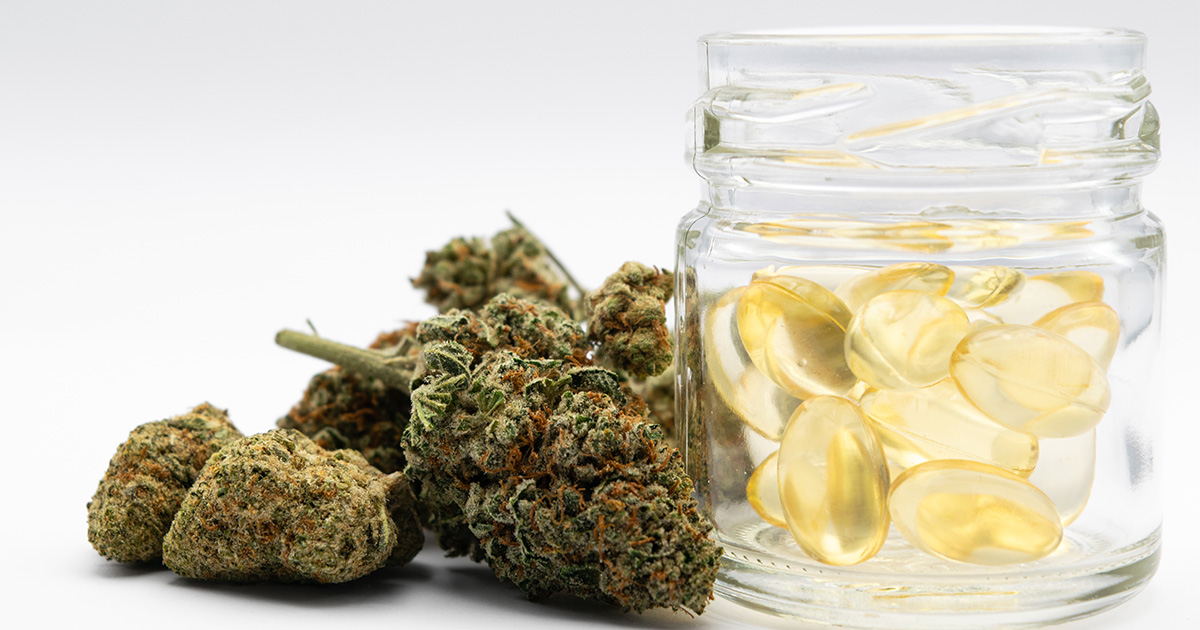The Woolcock Institute of Medical Research

Is cannabis the answer to insomnia?
Interest in medicinal cannabis as a potential treatment for insomnia has been gaining momentum. In the US, the market for CBD products is booming with predictions it could reach $36 billion a year by 2033.
But is there any proof that it works? That was the topic of Dr Camilla Hoyos’ recent Sleep Talk.
Sleep Talks is a join initiative of the Woolcock Institute of Medical Research and Macquarie University. The series of talks are delivered monthly on the fourth Thursday of the month and are designed to provide a university-wide forum with engaging and informative discussion on topics that have broad interest to academic and lay audiences.
Dr Hoyos says there is little in the way of robust scientific evidence to prove the effectiveness of cannabinoids as a treatment for insomnia. At the same time, this evidence is difficult to collect because of legislative requirements.
THE EVIDENCE TO DATE
There have so far been no head-to-head trials comparing cannabis against other medications for sleep, and very few placebo-controlled trials.
“More recently, trials have been done – including by my team at the Woolcock Institute of Medical Research – focusing on medicinal cannabis” said Dr Hoyos. “Most of these newer trials have had relatively small cohorts of participants, usually 30 or fewer at a time.”
“One recent study by my team looked at the effects of medicinal THC and CBD on how long participants with insomnia disorder slept. Contrary to the anecdotal reports, our findings showed people were getting an average of 25 minutes less sleep when using medicinal cannabis and a lot of this was accounted for by less REM sleep per night.”
“Several trials have also been carried out in Australia looking at low-dose CBD-only products (150mg or under) for insomnia and other conditions such as anxiety. To date, no evidence has been published to prove them to be effective. This may indicate that higher doses are required, or that it is not effective at all.”
Want to stay up to date with our research on sleep and respiratory conditions?
Sign up to our monthly newsletter
THE DIFFICULTY WITH TRIALS
Carrying out clinical trials involving cannabis products is difficult, and in some cases impossible, making it a challenging area to research.
Another of the cannabinoids, cannabinol (CBN), is already being marketed in the US for sleep. This is an oxidised form of THC, which garnered interest due to reports from cannabis users that older marijuana that had been exposed to the air made them sleepy.
Despite this interest, there is limited evidence that it is effective in insomnia disorder. Cannabis products are often considered ‘nutraceuticals’ in the US states where they are legal, putting them in the same basket as vitamin supplements. This also means they don’t need the same level of testing, evidence and approvals as medicines.
But ironically, while individual US states can make their own laws regarding recreational and medicinal cannabis, cannabis is illegal for any use at the federal level. This becomes important when it comes to clinical trials of products containing cannabis, as these trials are also regulated at the federal level. This has made approvals difficult to get.
It is a similar story in Australia. Even though CBD and THC are classified as controlled drugs and able to be prescribed under certain circumstances, CBN remains a prohibited substance. This means clinical trials of CBN have greater restrictions, in the same way as a trial using MDMA would be.
All of this adds up to many anecdotes and a lot of interest, but very little hard evidence to show that cannabis does – or does not – have benefits for insomnia. Before we can make recommendations in the area, larger-scale, controlled trials are needed.
This is an extract from an article in The Lighthouse published by Macquarie University.
Find out more
- Read the full story in Macquarie University's The Lighthouse Magazine
- Register for Sleep Talks events
- Sleep services at the Woolcock Clinic
- Our Sleep and Circadian Research Group










